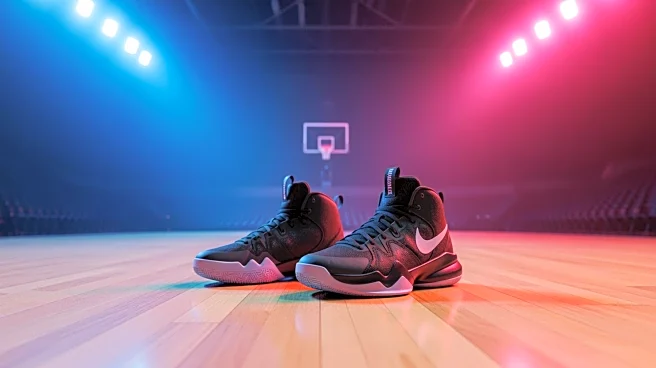What's Happening?
Dailyn Swain, a 6-foot-8 wing player, has transferred to the Texas Longhorns from Xavier University. Swain, who has two years of eligibility remaining, is set to make his debut for Texas in a high-profile game against Duke. During his time at Xavier,
Swain played in 63 games, averaging 8.0 points, 4.3 rebounds, 2.0 assists, and 1.3 steals per game. He is known for his shooting accuracy, with a 51% field goal percentage and 81.6% free throw percentage. Originally from Ohio, Swain was a top-100 national recruit and a two-time Ohio Division III Player of the Year. His move to Texas is seen as a significant addition to the team, with potential implications for his future NBA prospects.
Why It's Important?
Swain's transfer to Texas is significant for both the player and the team. For Swain, performing well in a competitive environment like Texas could enhance his visibility and improve his chances of being drafted into the NBA. For the Longhorns, acquiring a player of Swain's caliber could strengthen their roster and improve their performance in the NCAA. This move also highlights the increasing trend of college athletes transferring to programs that offer better exposure and development opportunities, reflecting broader changes in college sports dynamics.
What's Next?
Swain's performance in the upcoming game against Duke will be closely watched as it could set the tone for his season with Texas. A strong showing could boost his confidence and solidify his role within the team. Additionally, it will be interesting to see how Swain adapts to the Longhorns' playing style and how the team integrates his skills into their strategy. The outcome of this transfer could influence future decisions by other college athletes considering similar moves.
Beyond the Headlines
Swain's transfer underscores the evolving landscape of college basketball, where players are increasingly seeking programs that offer the best path to professional careers. This trend raises questions about the balance between athletic and academic priorities in college sports. It also highlights the role of college programs in developing future professional athletes, which could lead to further discussions on how these institutions support their players' long-term career goals.















